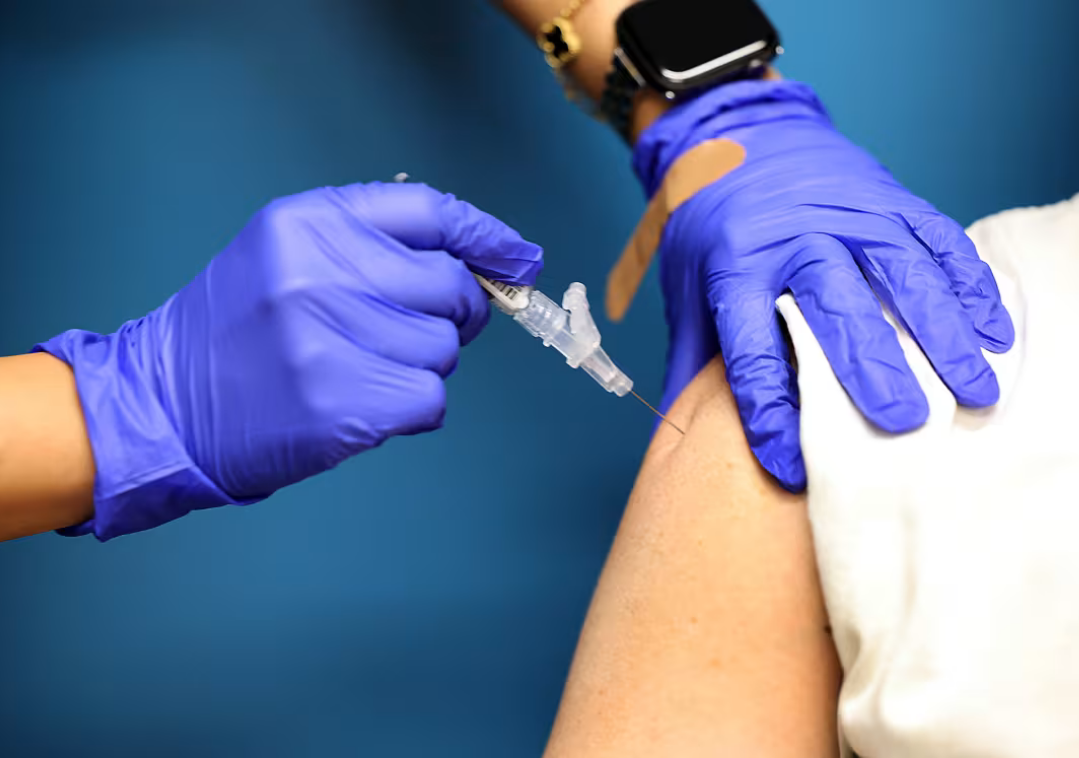Updated Vaccine Recommendations for 2025-2026

Amid conflicting viewpoints and inconsistent messaging from the Centers for Disease Control & Prevention’s Advisory Committee on Immunization Practices (ACIP), updated vaccination guidance has been released by a number of sources for the 2025–2026 season. This includes recommendations for influenza, COVID-19, respiratory syncytial virus (RSV), and pneumonia—each a key concern for long-term care, senior living, and other high-risk populations.
Influenza (Flu)
- Vaccine composition: All U.S. vaccines will be trivalent, designed to protect against two influenza A strains (H1N1 and H3N2) and one influenza B lineage (Victoria).
- FluMist: FDA approved for self-administration (ages 18–49) and caregiver administration (ages 2–17).
- Flublok: Expanded approval for ages 9+ (previously 18+).
- Single-dose formulations: ACIP recommends only preservative-free single-dose vaccines for children ≤18, pregnant women, and all adults.
- Timing: Ideally by the end of October, but vaccination should continue as long as flu is circulating.
COVID-19
- FDA-approved for adults aged 65 and older and high-risk individuals aged 5–64.
- Targets the SARS-CoV-2 LP.8.1 sublineage, which is a more precise match to currently circulating strains.
- Overturning their broader guidance for administration of the vaccine, ACIP’s most recent advisory on October 6 recommended that COVID-19 shots only be available for people 65 and older and only be administered through shared decision-making with healthcare providers. This is in direct conflict with evidence-based guidelines from the American Academy of Family Physicians, the American Association of Medical Colleges, the American Academy of Pediatrics, the American College of Obstetrics & Gynecology, and many state health organizations.
- 26 states, including Illinois and Wisconsin, had already set their own COVID vaccination guidance to keep access as broad as possible, so consulting state guidelines is advised.
- Previously, a spokesperson for the Department of Health & Human Services affirmed that Medicaid, Medicare, and other government health programs would continue to cover the shots at no cost. Health insurance lobbying group AHIP had also announced that COVID vaccines recommended by ACIP would be covered through 2026. It is unclear how ACIP’s most recent decree will affect coverage.
- COVID-19 vaccines may be co-administered with flu and other vaccines.
RSV
- The CDC recommends RSV vaccination for adults 60 years and older, using a shared decision-making approach with clinicians.
- For pregnant individuals, RSV vaccination is recommended between 32–36 weeks of gestation during RSV season to protect newborns.
Pneumonia
- Updated recommendations call for PCV20 or PCV21 for adults aged 65 and older and for younger adults with certain health conditions.
- New guidance stresses the importance of catch-up vaccination for those who have not yet received a pneumococcal conjugate vaccine.
- The Illinois Department of Public Health also includes pneumonia vaccination in its 2025–2026 Respiratory Immunization Recommendations.
Special Populations
- The American College of Cardiology emphasizes vaccination (influenza, COVID-19, RSV, and pneumococcal) for patients with heart disease, noting strong evidence for reduced cardiovascular complications.
- Health care providers should use every encounter as an opportunity to recommend and administer vaccines across all adult age groups.
Why Vaccination Matters
Routine vaccination reduces the risk of:
- Severe illness, hospitalization, and death.
- Emergency department visits and preventable complications.
- Transmission of respiratory infections in communities and health care settings.
Keeping up with evidence-based vaccine recommendations is essential to protecting residents, staff, and communities from preventable respiratory illnesses — particularly given that ACIP’s reversal on COVID-19 was issued just as a new study found that survivors over 50 years old experienced a 41% increased risk of developing new-onset dementia including, but not limited to, Alzheimer’s disease and vascular dementia.